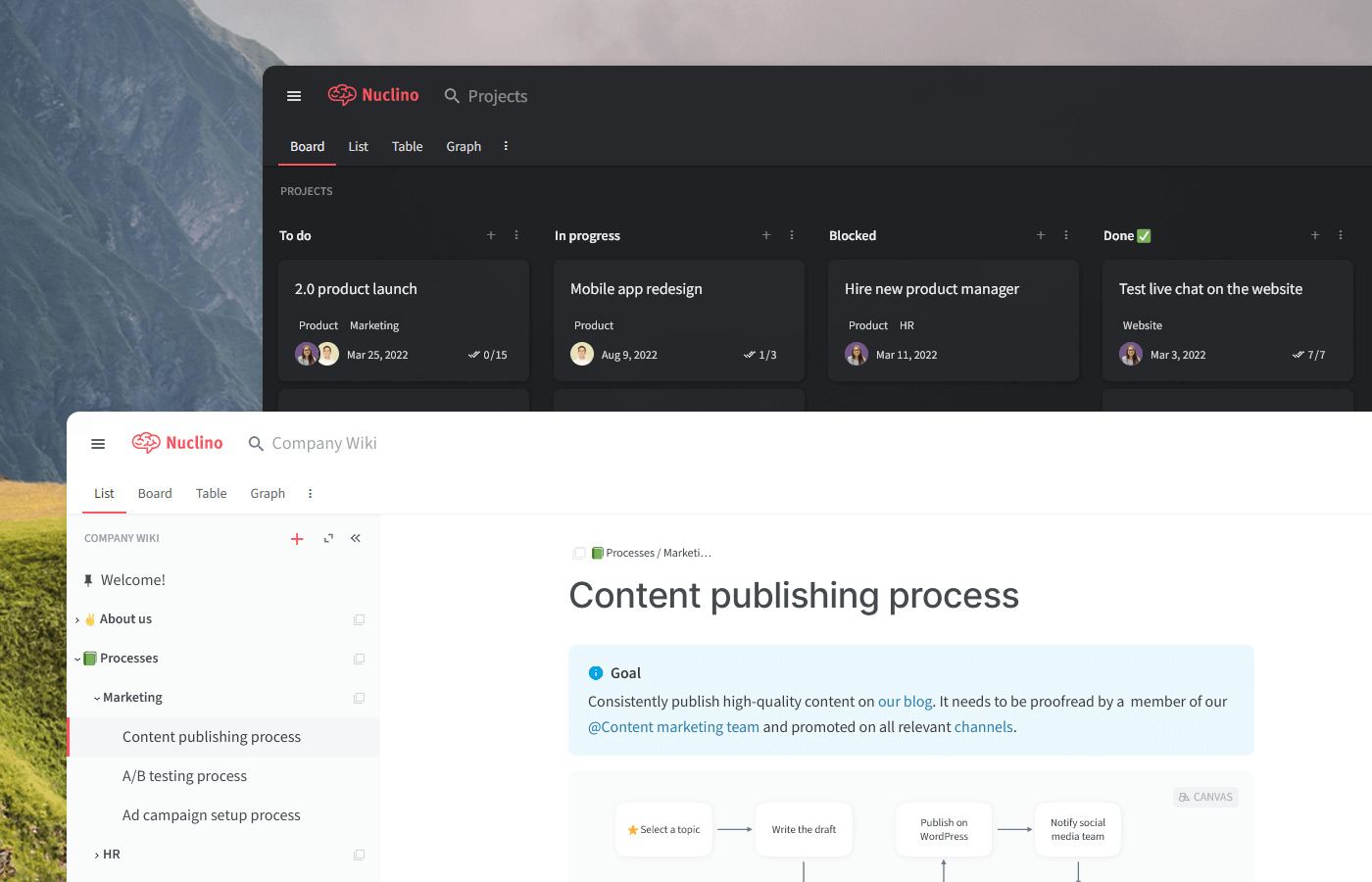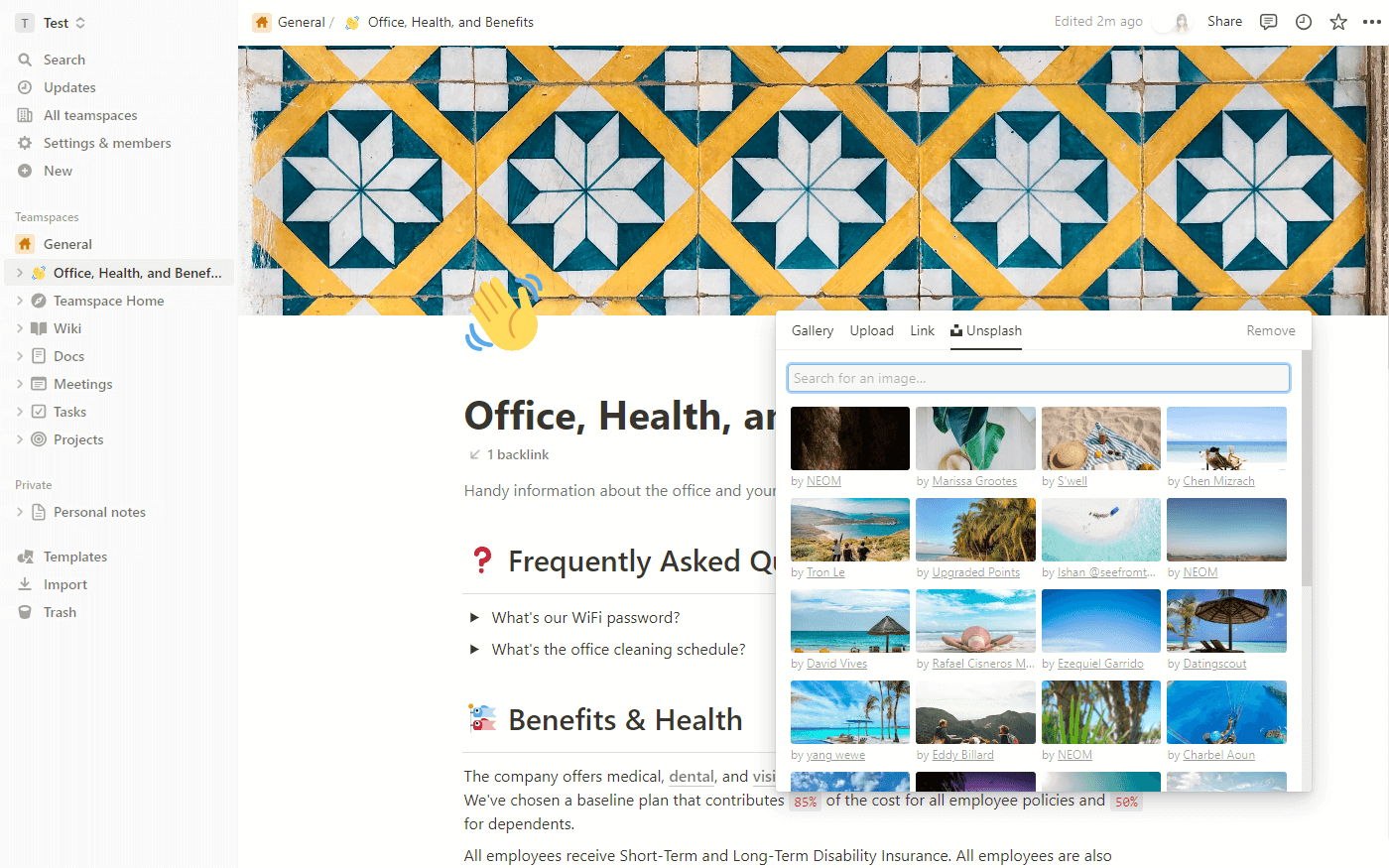Notion Slow?
Learn how to make Notion load and run faster.
Notion, a widely-used productivity tool, has gained popularity for its ability to consolidate note-taking, task management, databases, and project planning within a single platform.
However, as with any software, Notion is not without its flaws. While its powerful features and flexible customization options have undoubtedly won over many users, many have encountered occasional performance issues, such as slow loading times. Despite ongoing efforts by Notion to optimize the app, it still takes a few seconds longer to load than what most users consider convenient.
In this article, we will explore the factors that may contribute to Notion's performance issues and provide practical techniques to optimize its speed and responsiveness.
What makes Notion slow
Notion's occasional sluggishness and slower loading times can be attributed to several factors. Let's take a closer look at what could be contributing to Notion's slowdowns:
Amount of content: The more content you have on a Notion page, the slower it's likely to load. The load speed may also vary depending on the types of blocks you’ve added to a page. For example, pages with mostly Text blocks will typically load more quickly than a page with several linked databases, widgets, embeds, and images (especially GIFs).
Complexity of your databases: Extensively linked or complex databases can sometimes strain Notion's servers, leading to slower loading times, especially when dealing with large datasets.
Internet connection: Because Notion doesn't offer a true offline mode (yet), your internet connection directly affects how fast Notion will load for you. To avoid longer loading times for pages, it's essential to be aware of what is good internet speed for optimal performance.
Other active apps and processes: Notion will likely be slow if you have a ton of programs, apps, browser tabs, and background processes running. So to make Notion run faster, check your Activity Monitor (macOS) or Task Manager (Windows) and see what programs you can close. Quitting a program or process is better than simply closing it.

How to make Notion load faster
While Notion's developers are continually working to enhance the app's speed and responsiveness, understanding these underlying factors can help users implement strategies to mitigate slowdowns and create a smoother experience.
There are several steps you can take to enhance its performance and ensure a smoother user experience.
Compress the images
Large image file sizes can significantly slow down Notion's loading time. Before uploading images, download and compress them using tools like TinyPNG to reduce their size without compromising quality. Compressed images will load faster and be cached in your app or browser, leading to quicker loading times in the future.
Avoid using Unsplash photos as page covers
Unsplash, a popular royalty-free stock photo site, seamlessly integrates with Notion. It offers users the option to search its vast image library directly within the app. Though this integration provides a convenient means of selecting beautiful cover images, it can unintentionally lead to slower loading times in Notion.
Unsplash's images can be quite large, and since Notion does not offer the option to choose the resolution or file size, it loads the original file every time. This can lead to frequent data requests and slower loading times. Instead, consider downloading smaller versions of Unsplash images or compressing the original files.

Use the desktop app
If you typically access Notion through your browser, consider switching to the desktop app for improved performance. The desktop app capitalizes on your computer's resources, resulting in quicker loading times and smoother navigation throughout the workspace.
Limit the use of linked databases
Notion's databases are powerful, but making them too complex or using too many on a single page can lead to lag. The impact on speed depends on factors such as the number of databases, the number of properties, the layout, and so on.
Archive or delete old content
Regularly review your workspace and delete any pages no longer in use to keep Notion running smoothly.
Clear your cache
Cache stores temporary data to speed up subsequent visits to the same pages. Clearing your cache can help improve Notion's loading speed, whether you are using the desktop app or accessing Notion via your browser.
Don't overuse widgets
Widgets can add flair to your workspace and enhance the aesthetics of your Notion setup. However, it's important to remember that widgets are web-based elements, which means that Notion needs to make frequent data requests to the widget provider to load and display them. Using an abundance of embedded widgets can lead to slower loading times and potential lag within Notion.
To optimize the speed of your Notion pages, consider reducing the number of embedded widgets you use or organizing them within a Toggle block. By nesting widgets within a Toggle, you can easily show or hide them, thereby reducing the simultaneous data requests and improving overall loading speed.
Consider switching to a faster platform
Notion has many strengths, but speed has never been one of them. And while there is a lot you can do to make Notion load faster, if performance issues persist, there may come a point where your only remaining option will be to explore other alternatives. Fortunately, there are tools that provide similar features in a much faster package.
One such tool is Nuclino, a snappier, more streamlined Notion alternative for those who value performance and efficiency. Lightweight and simple, Nuclino is purpose-built for speed. It offers much of the same essential functionality as Notion, without the needlessly complex and superfluous elements to slow things down. Searching, editing, collaborating — every interaction is optimized to feel instantaneous.
The interface of Nuclino is intuitive, clean, and responsive. This not only makes it easier to use but also results in faster, more seamless navigation. There's less clutter to wade through and finding what you need is quick and easy. But don't just take our word for it – try Nuclino and see for yourself.

Bottom line, there are many practical steps you can take to optimize the performance of Notion. But depending on the amount and type of content you deal with, as well as your specific workflow requirements, these measures may only go so far. If after all the optimizations, you find that Notion is still too slow and your productivity continues to get hampered, it may be a sign to reassess your choice of productivity tools.
Ready to get started?
